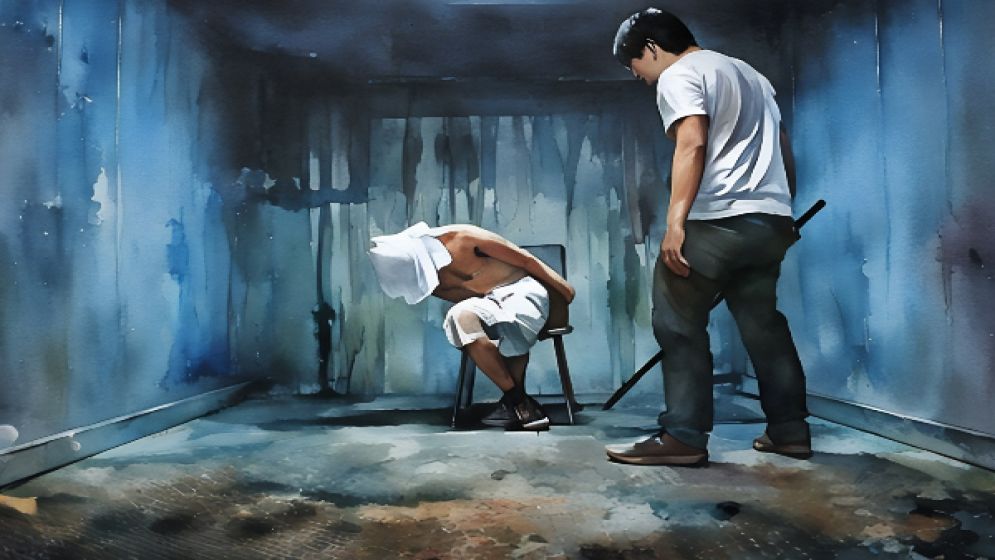Amnesty International calls on Bangladesh to end torture impunity and ensure reparations for victims

Amnesty International today calls on Bangladesh to end impunity for torture and other ill-treatment by law enforcement, hold perpetrators accountable, and provide reparations to victims.
Despite ratifying the UN Convention Against Torture and enacting relevant legislation, there has been only one conviction for torture in over a decade, says the right body.
“Torture and other ill-treatment are abhorrent and never justified,” said Taqbir Huda, Amnesty International’s Regional Researcher for South Asia.
Taqbir said Bangladesh’s authorities must ensure that allegations of widespread and persistent torture and other ill-treatment at the hands of law enforcement officers are “thoroughly, impartially and independently” investigated, and “suspected officers are brought to justice through fair trials.”
Custodial deaths continue to be reported in Bangladesh’s media with alarming frequency. Between January 2013 and May 2024, rights group Ain o Salish Kendra has documented 138 deaths which were allegedly caused due to physical torture by law enforcement agencies.
It also documented 923 deaths in jail custody which were reported in the media in the same time period.
In September 2023, the Bangladesh government reported to the UN Human Rights Council that 24 cases had been filed under the 2013 torture law so far.
Cases of torture
In a recent alleged case of drug possession, on 2 June 2024, 40-year-old Afroza Begum died in police custody following her arrest in Abhaynagar sub-district.
Afroza Begum’s son, Arif Hossain Munna, recounted that his family had faced persistent harassment from the police prior to the raid on their residence.
"Two police officers who had been extorting money from us forcibly entered our home at midnight, accompanied by a known drug dealer. Unable to locate my father, they subjected my mother to a physical search, tied her hair to a ceiling fan, and continuously slapped her," he reported to Amnesty International.
"They then confiscated 188,000 taka (US$1,590) from my mother’s safe and planted 30 yaba pills from the drug dealer’s possession on her. They falsely accused her of drug possession before my eyes, as a preemptive measure to avoid potential charges of torture and theft against them."
Munna further stated that when he visited his mother at the police station the next morning, the police prevented him from providing her with food or medicine, and she ultimately passed away due to their torture and brutality.
He added that his family had been threatened with death if they pursued legal action against the police: "On June 10, while my younger brother was on his way to school, the drug dealer warned him, 'If your family tries to file a case, we will kill you just like we killed your mother.'"
In another case, Ishtiaque Hossain Johnny and his brother Imtiaz Hossain Rocky were arbitrarily arrested and tortured by police in Dhaka in February 2014.
Johnny tragically died from his injuries, leading to a landmark legal battle under Bangladesh's 2013 torture law.
The brothers' family, particularly Rocky, faced immense pressure, including threats and offers of financial settlements, to drop the case. However, they persisted, ultimately securing life sentences for three officers in September 2020. The court also ordered compensation to be paid to Johnny's family.
Despite this legal victory, the family has yet to receive any compensation due to an ongoing appeal. This case highlights the challenges and complexities in seeking justice for victims of torture in Bangladesh, even with legal protections in place.
Jahidur Rahman, the police inspector convicted in the Johnny case, was also accused of torturing a trader named Mahbubur Rahman Sujon to death in July 2014.
According to Sujon's family, Rahman and other officers forcibly entered Sujon's home, looted valuables, and subjected him, his wife, and young son to violence. Sujon was then arrested under false charges and further tortured at the police station.
Sujon's family faced pressure to drop the case, including a bribe offer to his mother. She was subsequently arrested and imprisoned on fabricated charges when she refused. The torture case against Rahman for Sujon's death remains pending.
“It is unconscionable that there has been little to no accountability for these brutal crimes. In light of the painfully slow progress towards delivering justice to the victims of torture and their families, Bangladesh must establish a compensation fund for victims of torture,” researcher Taqbir Huda said.
“It must also ratify the Optional Protocol to the UN Convention Against Torture so that if impunity persists victims can file complaints directly to the UN Committee against Torture,” he added.
—--

